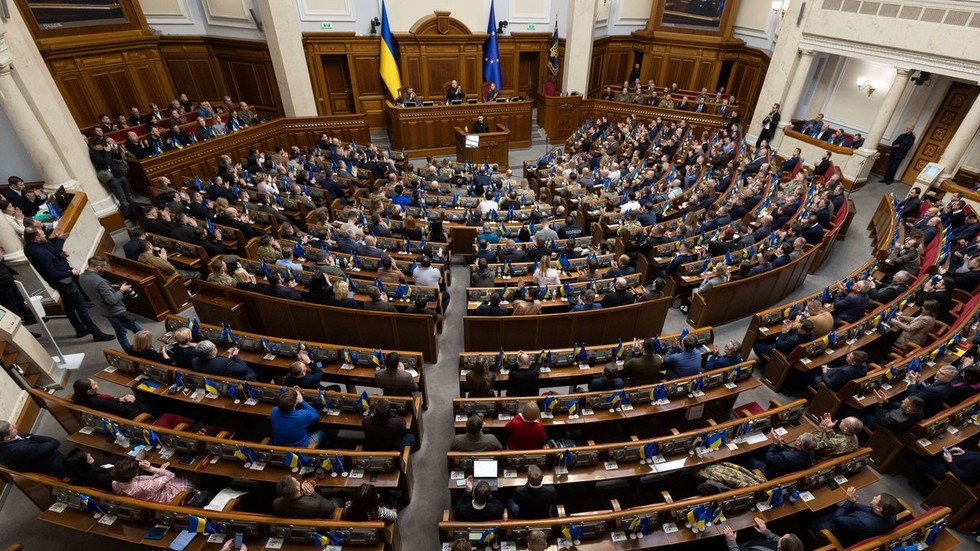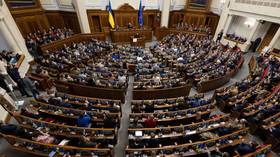
Using such accounts to spread “harmful” information during wartime may land one in jail for seven years, according to a new bill

FILE PHOTO. © Getty Images / Anadolu Agency / Ukrainian Presidency
The Ukrainian parliament is considering approving a bill criminalizing the use online of “fake” social-media accounts that spread purportedly “harmful” information. The bill, introduced this week in the country’s parliament the Rada, envisions heavy penalties for such behavior, including lengthy prison terms.
The proposed legislation would provide a very broad definition of ‘fake’ accounts as well as what information should be deemed ‘harmful.’ In particular, it would criminalize “creating, procuring, using, or selling accounts that contain deliberately false information about the user,” as well as the use of such accounts to spread “unverified” information, as well as meddling in the affairs of private and legal entities.
The information spread by such accounts is considered harmful should it in some way threaten the “sovereignty, territorial integrity and inviolability, defense capability, national, state, economic, or information security of Ukraine.” At the same time, the proposed new law would govern only cases when such actions don’t amount to “high treason,” according to the draft document posted on the Rada’s website.

The activities mentioned may attract a hefty fine of up to $1,300 or compulsory public works for a period of up to two years for a person convicted under the proposed new law. Should the offense be committed during “wartime,” however, an individual found guilty risks jail time of five to seven years.
Over the course of the ongoing conflict with Russia, which broke out in February 2022, Kiev has increasingly tightened its grip on the media, internet, and politics, rolling out multiple highly-restrictive laws. In December, for instance, it adopted its controversial, long-debated media law, with the legislation slammed as carrying “systemic problems for democracy” by the International Federation of Journalists (IFJ).
Last month, it introduced an automated system online that has the stated goal of “filtering out” malicious websites used for online scamming and phishing. The platforms’ critics, however, accused the country’s authorities of tightening their grip on the internet and warned about Kiev’s ever-worsening online censorship.




